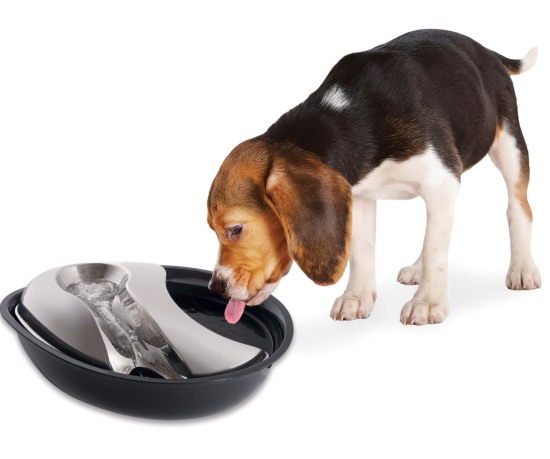There are numerous common traits between animals and their owners, and one of the most common known problems in both cases is flatulence. This actually means the release of gas and it might be an indicator of the pet’s health condition. Every dog breed might suffer from flatulence.
The term originates from the medical word for gas, flatus, but the majority of the people simply refers to it as “fartâ€. While some think that farts are funny, they might be quite annoying during a dinner party or a romantic interlude. In such cases there might be need for something to be done about it.

It is a known fact that while eating, pets swallow air, which is made of oxygen, nitrogen and other kinds of gases. The oxygen is absorbed through the walls of the intestines and it gets into the bloodstream.
The bacteria that might be found in the intestines are to “blame†for converting food into different kinds of substances, including gas. Usually there is no problem with the volume of this gas, but with the odor, that might vary from one case to the other.
In case the digestive tract is out of balance, it will make the animal produce more gas. There are some reasons for which the dog might release more gas than it should. One of the reasons might be the dog food that is rich in wheat, soy, corn or other kinds of cereal grains. The balance will be messed up both in case of high fiber and low fiber diets.
The additives and preservatives that are used in dog food might also upset the bacteria population and the fungi. The very high protein levels have the same effect on the digestive tract. The gas that has been produced by proteins, like eggs and dairy products might be especially smelly.
In case there are some major changes in the diet, and new kinds of food are added, like beans, broccoli, lentils, cauliflower or cabbage, there will be a higher level of gas production. Certain over the counter drugs might also affect the digestive tract. Gas attacks might be triggered by antibiotics, blood pressure drugs, antidepressants, supplements and narcotics.
Parasites found in the intestines might also be to blame because of excessive gas release, such as Giardia. The inflammatory bowel conditions also alter the normal functioning of the gastrointestinal tract. There are numerous reasons, including inflammatory bowel disease, allergies, adverse reactions to food, acid production problems, and digestive enzyme production problems.
There are also a number of health problems that might lead to gas production.
Bacterial overgrowth might throw the system off balance, and this situation can be aggravated by stress, allergies or inappropriate pet medication. Another major source of excessive gas release is stress. This might break the harmony of the delicate hormone balance and of the immune system. All these lead to gas production.
As you might see, the reasons of this annoying situation come down to the general health of the animal.












